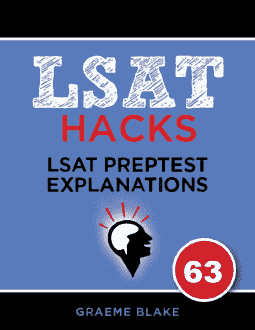QUESTION TEXT: The qwerty keyboard became the standard keyboard with…
QUESTION TYPE: Most Strongly Supported
FACTS:
- The Dvorak keyboard is much faster.
- But there are many costs to switching. These costs would outweigh the eventual increase in typing speed.
ANALYSIS: It’s clear that we would be better off if we could use the Dvorak keyboard without having to deal with transition costs. But we can’t. If we switch, then there will be many disadvantages while we get used to the new system. The fact that QWERTY came first means that we should stick with the current system and avoid the transition costs.
___________
- As far as we can tell, the Dvorak keyboard is accurate. The problem is the costs of switching.
- We have no idea what “usually” happens; we only know about keyboards. And with keyboards, people settled on a less efficient standard.
- People don’t stick with current standards because they’re afraid of change. They stick with current standards because the transition costs would outweigh the benefits.
- Same as C. Emotions have nothing to do with it. It simply isn’t rational to switch: the transition costs are simply too high.
- CORRECT. If we had no keyboards and had to choose then we would choose the Dvorak. But we are already using the QWERTY keyboard, so there are high transition costs. We are stuck with QWERTY.


Why is E correct?? The fact that the standard is already in wide use is not the reason in the stimulus for wanting to keep that standard. It is the POSSIBLE outgrowths that come from the standard, such as money, society, etc. But these are only POSSIBLE outgrowths, while the fact that it is already the standard is not any reason at all to make it more practical of a choice than an alternative.
It doesn’t sound like you understood the stimulus. The passage said that Dvorak would be faster to type with, but it would be hard to switch from QWERTY, because QWERTY is in wide use. This matches E, which says that a standard being used can lead to people keeping the standard.
Note: This is an old comment but I wanted to clarify the point.
My only question on this is that on D, can’t we assume that “frustration” in the stimulus is similar to one’s emotions? Wouldn’t that make D correct?
The stimulus just says that frustration is one of a set of factors that together outweigh the benefits that would be gained from faster typing. The answer choice just talks about emotional cost. So, even if we do call frustration a kind of emotional cost, the answer choice still goes beyond the letter of the stimulus.